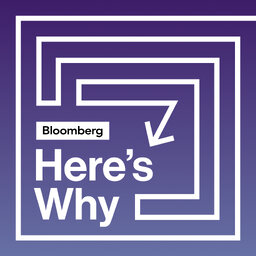COVID, Alcohol Consumption, and Childcare Costs
What to make of the recent COVID uptick? Bloomberg Opinion editor Brooke Sample talks about the possible responses to the recent rebound. Columnists Kathryn Edwards and Lisa Jarvis also join us, discussing childcare costs as well as alcohol consumption> We also explore the expensive office lunch with Allison Schrager. Amy Morris hosts.
In 1 playlist(s)
Bloomberg Opinion
Deeper conversations on the week's most significant developments. Tune in and join in!Social links
Follow podcast
Recent clips

Introducing 'Here's Why' - Complex News Stories Explained
00:30

Airline Mergers and Restaurant Loyalty
35:20

Fossil Fuel Use and Drug Development
35:28
 Bloomberg Opinion
Bloomberg Opinion